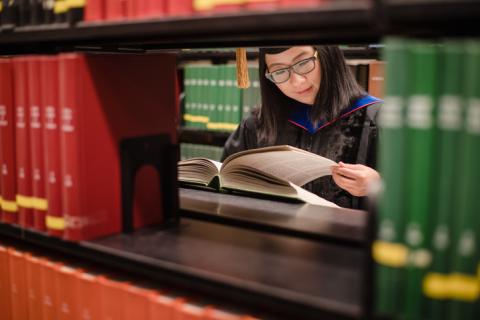The festive holidays are a time of celebration – good food, lots of parties and time spent with family and friends. Unfortunately, for those sitting exams in the new year, that also means revision.
Studying might not seem like a recipe for festive fun, but fear not. If you’re organised and get started early, you can still have a great holiday and be prepared for your exams. Stick to these relaxation and revision tips and you’ll go back in the new year feeling relaxed, revitalised and well prepared.
List all the social events you don’t want to miss
It’s the holidays – you want to have a good time. So build your revision around the things you really want to do. Schedule in all your most important events and dates in your diary so that you know the times you won’t be able to study. Now you can fit your studying in around the gaps. It’s important that you schedule in this down time to make sure you don’t feel left out of the festivities. But also bear in mind how much studying you have to do and be sensible about how many social events to say yes to.
If you are staying at university over the break and have been unable to travel home, then make sure you also arrange to see friends who have stayed on campus, schedule calls with your family and take some time for yourself to unwind.
Create a realistic timetable
While it can be easy to leave little time for revision among all the festive fun, make sure that you don’t go too far the other way and schedule 12-hour revision marathons. Focusing on your work for that long is a Herculean task, and if you fall short then you’re going to feel like you’ve wasted your day. Give yourself short revision sessions of a couple of hours at a time with regular breaks in between to make sure you remain fresh.
Prioritise the work you need to do
Take a look at all the exams that you have in January, then work backwards to ensure that you have factored in enough time to study for each of those exams.
This can also be a good time to get ahead on some essays or reading that you need to get done for January. Alongside revising for exams, schedule in some time to work on any essays or projects you have due in after the break or start to tackle that reading list. It might seem like a chore, but you’ll be thankful when the new term rolls around.
However, there’s no need to start a reading list for a module that you won’t be starting until March. Ensure that you are prioritising the pieces of work that will need to be handed in in the first few weeks of the year.
Study space
Create a space at home that will be your study area for the holidays. This should be a clear, quiet place where you won’t be disturbed while you’re working. If you have a spare bedroom, converting it into your temporary study would be ideal. If you can possibly manage it, don’t set up in the kitchen or living room. Sure, you’ll have company that way, but you’ll also be surrounded by distractions.
Or even head to the local library or coffee shop to get some work in. It’s another way to get you out of the house for a bit, and a change of scenery can work wonders for boosting productivity levels.
If you have no other option than to use a busy room, make sure members of your family know your revision timetable and will avoid disturbing you during study hours. Put a printed copy of your timetable on the wall so that everyone knows when you’re not to be bothered.
Create a relaxing atmosphere
However, on the other side, there might be many international students who are unable to go home for the holidays and find themselves staying in their student rooms for the festive break.
If that’s the case, then it’s also important to clear away your study space at the end of of a revision session to ensure that you differentiate between work time and leisure time if you’re staying in the same room.
It can be hard to relax if you have a big stack of books staring at you from your desk, so pack them away neatly when you’re done so you can truly relax at the end of the day.
Make time to relax
Make sure you mix your revision with plenty of time spent enjoying yourself. Whether that’s catching up with family, spending time with friends or spending time on your own to recharge, having some periods of downtime will be crucial to ensuring you stay motivated to study.
Ditch the revision for a while and use the flexibility of your study planner to catch up on your hours later. Just make sure you are strict enough with yourself that you still manage to finish all the work you have to do and that you aren’t staying up until 3am to finish it.
Keep it simple
The Christmas break is a brilliant opportunity to recharge your batteries. Yes, you’re going to have to do some work, but don’t make yourself feel guilty for having a good time and don’t try to force yourself to study for 10 hours a day. Overdoing it is a quick way to make yourself stressed. Instead, look after your well-being and you’ll find that you are so much more motivated to complete your work if you know you’ll have some time off later to enjoy yourself.

Comments